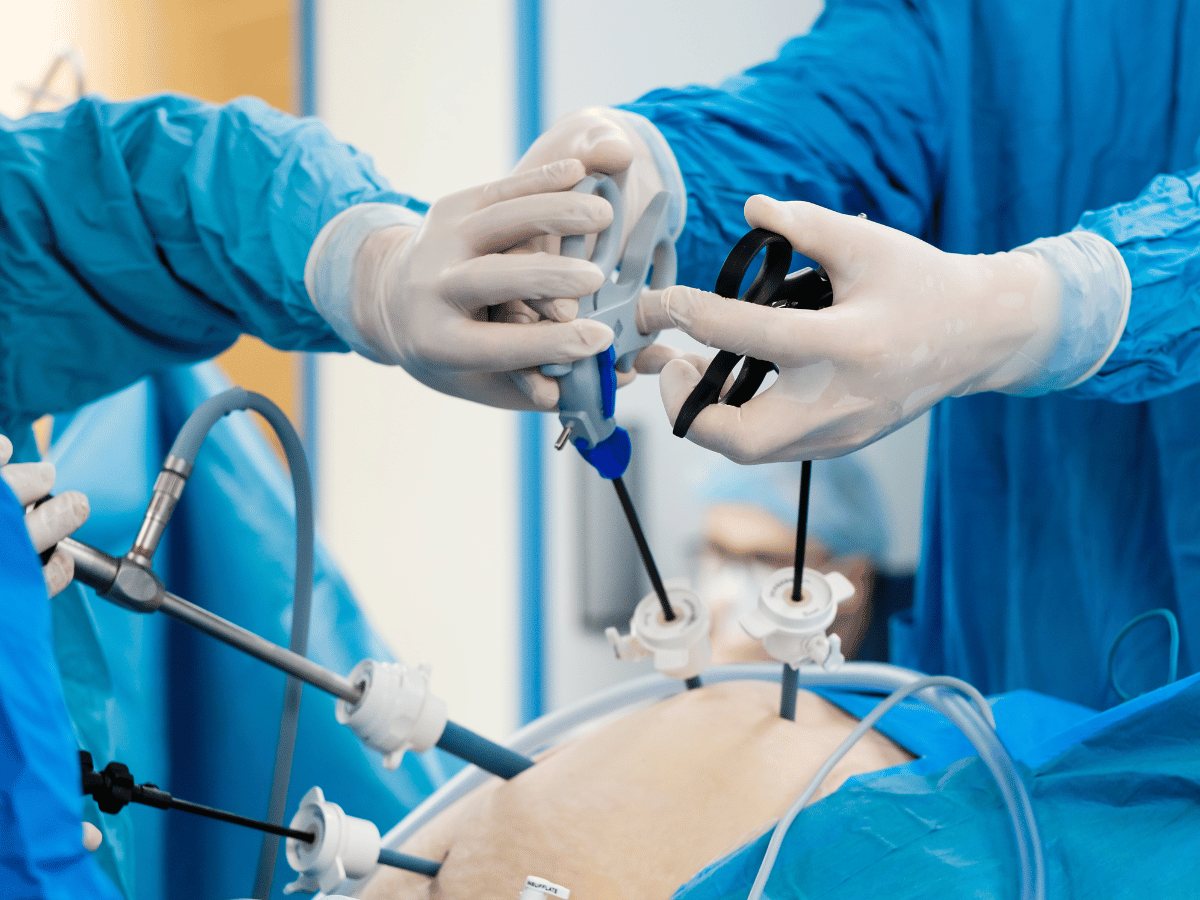
Minimally Invasive Surgery, or MIS, refers to surgical techniques that use small incisions, specialized instruments, and often cameras to perform procedures with minimal damage to surrounding tissues. Unlike traditional open surgery, where large incisions expose broad areas, MIS focuses on precision and minimal intrusion.
We’ve seen tremendous advancements in this field over the past few decades, and MIS is now common in areas like gynecology, urology, orthopedics, cardiology, and gastrointestinal surgery. Procedures such as laparoscopic cholecystectomy (gallbladder removal), appendectomy, and hernia repair are now often performed using MIS techniques.
MIS has its roots in endoscopy, developed in the early 20th century. But it wasn’t until the late 1980s that laparoscopic surgery became widespread, thanks to advancements in fiber optics and video technology.
In the 2000s, robotic systems like the da Vinci Surgical System added a new layer of precision, converting hand movements into smaller, more controlled actions. This jump in technology has redefined what’s surgically possible, especially in intricate areas like cardiac and pelvic surgery.
Think of traditional surgery as opening a book to read a paragraph, effective but exposing everything. By contrast, MIS is like shining a flashlight through a tiny hole to read that same paragraph. The information remains accessible but with much less disruption.
Open surgery requires deeper incisions resulting in more blood loss, longer hospital stays, and increased risk of infection.
One of our patients, Carla, underwent laparoscopic gallbladder surgery and was back at work within a week. Compare this to the traditional recovery time of up to three weeks, and the benefits become very clear.
At the heart of MIS are two main tools: the laparoscope and the robotic surgical system.
During our consultations, we thoroughly evaluate these factors and often use imaging to plan the safest and most beneficial approach for each patient.
Importantly, we recommend:
We’re already seeing some of these in test environments and clinical trials, and as these become standard, expect even faster recoveries, improved safety, and better outcomes.
Considering surgery? Get the gold standard in modern care with minimally invasive techniques. Connect with the specialists at South Florida Multispecialty Group to see if MIS is right for you.
MIS uses tiny incisions and specialized tools to perform surgery with minimal tissue disruption. A camera provides live visuals, allowing surgeons to operate effectively without large cuts.
Common MIS procedures include laparoscopic gallbladder and appendix removal, arthroscopic joint repair, endoscopic sinus surgery, and robotic-assisted prostate surgery.
Patients recover faster, have fewer infections, and experience less pain. Most can return to normal activities in 1–2 weeks, compared to multiple weeks for open surgery.
Ideal candidates are those with localized conditions, good general health, and no major prior abdominal surgeries. A proper evaluation by a surgeon is essential.
Possible risks include conversion to open surgery mid-operation, reaction to anesthesia, infection, or bleeding. Though rare, these risks exist and are discussed during consent.
Laparoscopic surgery is done manually through small incisions. Robotic-assisted surgery uses mechanical arms controlled by the surgeon, offering finer control and precision.
Scarring is minimal—often tiny marks that fade over time. They're significantly smaller than those from open surgery
Preparation usually includes fasting and pre-op labs. Post-surgery recovery involves mild discomfort, follow-up checkups, and a gradual return to activity within days to weeks.
Your well-being is our top priority. Reach out today to discover how our dedicated team can support your health journey.
Have questions or want to learn more? Use the form below to get started!
Connect with South Florida’s trusted multispecialty care team and take control of your health with compassion and convenience.
©2025 South Florida Multispecialty Medical Group. All Rights Reserved.